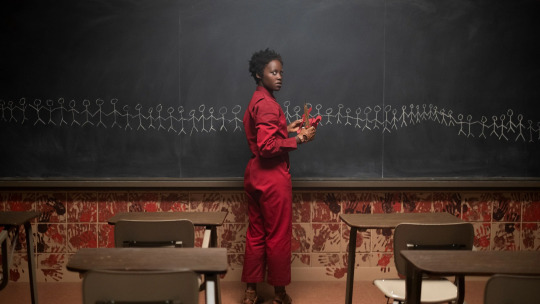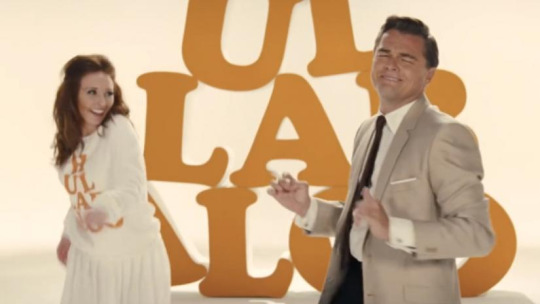#probably something to do with the ‘c!bad had c!foolish executed’ thing. but it’s a neat detail
Note
Came here to appreciate Dapper and Foolish's relationship. People who unironically think Foolish dislikes Dapper because they personally think Dapper is annoying as so funny likeee Foolish would kill for that kid. He'd die for Dapper.
There's no world where he ever admits how much he cares about him, but from him telling Dapper to run when Spreen and the others wanted to kill Dapper and defending him to him repeatedly messaging global chat and then Bad in private after he had to leave Bad and Dapper alone with Maxo while they were in danger so he could protect Leo to his relief when he seen Dapper after the eggs came back...
It's not hard to see his attachment. And even if Foolish himself wasn't so horribly attached to Dapper, Leonarda said he was her twin and called Dapper her little brother– to the point that she gets mad if Foolish is mean about Dapper in front of her. So if not for himself, he'd protect Dapper because LEO cares for him so deeply.
Dapper antagonizes Foolish JUST LIKE Bad does and it is something Foolish has confirmed is part of his very close friendship with Bad. (The Foolish defending Bad clip is my favorite clip ever btw. Get fucked BBH antis.)
Sorry I am a bit insane can you tell,
NO NO NO YOU’RE SO RIGHT !!! it’s just like how foolish actually likes bad despite bad constantly annoying and antagonizing him. he’s endeared by that obnoxious demon and his equally obnoxious son !!! even if he will never admit it …
but also . there are people that find dapper annoying ? like who are fr annoyed by dapper ? do they just like … hate autistic people or what … ?
#ask#also I’m noticing that q!foolish is much more willing to be openly friendly with q!bad#than c!foolish was willing to be with c!bad#probably something to do with the ‘c!bad had c!foolish executed’ thing. but it’s a neat detail#q!landduo have a friendly mutual rivalry meanwhile c!landduo had. uhm. That.
13 notes
·
View notes
Text
The Best Films of 2019, Part V
(Sorry for the long wait.)
GOOD MOVIES

43. Luce (Julius Onah)- For every subtle, graceful moment, there's a spelled-out, maladroit moment, but this movie has a lot on its mind regarding race. Naomi Watts is great as a mother whose unwavering support of her son is as admirable as it is foolish, and Octavia Spencer plays a very real type that I hadn't seen in a movie, a teacher who uses her students to validate her own worldview.
The film takes a long time to judge its characters, to the point that the title character could have done none of the things he's accused of (unlikely), some of the things he's accused of (likely), or all of the things he's accused of (unlikely). The dialogue is sometimes theatrical, but thankfully, so is the ambiguity.
42. A Beautiful Day in the Neighborhood (Marielle Heller)- I appreciated the deft touch of Marielle Heller--stuff works in this movie that would look silly on the page--but I wasn't fully connecting. That is, until Chris Cooper got a tear lodged in the corner of his eye and said: "It's not fair. I was just starting to figure out how to live my life." That achieved what it was supposed to achieve.
41. Little Women (Greta Gerwig)- Gerwig takes chances with the structure, and it takes a long time for that gambit to pay off. Once it does though, such as when Jo comes downstairs to see a hearty Beth, which is only there to contrast Jo coming downstairs minutes later to an empty kitchen without Beth, the reinvention pays dividends. I liked whenever the film was winking at the audience, showing its own strings, but that first half was a lot of "Amy, you're Amy, right? And the audience can tell us apart, right, Amy?"
The Chalamet-Pugh scenes, to use a phrase that a Sacramentonian like Gerwig might approve of, just hit different. Especially in the scene that most directly addresses Alcott's division between obligation and personal responsibility, their chemistry crackles. Can someone please cast those two as reporters stepping over each other while trying to crack the same scoop? Please?
40. Dark Waters (Todd Haynes)- In the Todd Haynes filmography, this is an effective if weird entry: He makes the procedural, research-based parts of a legal thriller exciting while the actual courtroom stuff falls flat. And it's a strange challenge for a director with such a sumptuous eye for design to capture the flat textures of Cincinnati office space or the sacky suits of a guy who is consumed by a case. That being said, the film is a work of conscience and compassion. It's no small feat to call out DuPont by name over a hundred times.
The first half moves nimbly. When it works, such as the creative montage that explains Teflon to the audience, it resists the crutches of its genre. But the story suffers from having to compress so many years in the second half. Those broad strokes affect both the supporting performances--only Tim Robbins is able to sell his character's change of heart in limited screen time--and tone. Sometimes the "None of this matters" scenes are right next to the "Maybe I've made a difference" scenes, and it's jarring.
39. One Child Nation (Nanfu Wang)- It's a cool trick for something so handmade and personal to also stand in as a story of a country. And it's as affecting as you would imagine images of discarded fetuses would be. If I sound dismissive though, it's because I don't know quite to do with this. China...sucks?
38. Ford v. Ferrari (James Mangold)- Hard to argue with the craftsmanship of a film that cares so much about its structure on a scene-by-scene level. Ford v. Ferrari is two-and-a-half hours (four hours on TNT every Sunday forever), but, if anything, the forty minutes dedicated to Le Mans could be longer. Josh Lucas nearly tanks the thing with his smugness, but the other performances are fun. My take on why the film is a guide for being a Republican is still charging.

37. Us (Jordan Peele)- Us made $70 million in its opening weekend, which is a lot for a David Lynch movie. It's amazing that a film this artsty and accusatory toward its audience (Us=U.S.) is immensely popular.
The imagery of Us is arresting (and so so funny). Within the first two shots, you know you're in good hands, and my Tumblr feed is going to be full of, say, Elisabeth Moss, whose expressions are the best effect in movies, giving herself a smile with scissors. Scissors that always create a division in their "tethered" subject, that are handled by Freddy Krueger gloves that are clearly an influence on Jordan Peele, that make construction paper cut-outs that mirror the bougie family decal on the back of the Wilson Family's station wagon. This device is a thought-out visual component. But Us is all too often a subtext in search of a text. When we really start to unpack the shadow people, they might not even make literal sense. I say this as I plan a second viewing that the movie deserves. On one hand, I admire Peele's search for a metaphor for political division or homelessness or late capitalism. On the other hand, a metaphor for everything is a metaphor for nothing.
36. Richard Jewell (Clint Eastwood)- Like most Eastwood directorial efforts, things are a little too neat and fixed in the setup: This character saying something a bit too on-the-nose and biographical, those characters probably not being in the same place at the same time. And the female characters, especially Olivia Wilde's rapacious, promiscuous Kathy, would have felt out of place thirty years ago, let alone now. There's barely anything on the page for her, and, to be honest, I don't think she does much with what she was given.
Once the film settles into what it's actually about though, the drama is graceful and potent. The attorney-client relationship is specific and interesting, and in a less loaded year, Paul Walter Hauser and Sam Rockwell would be clearing their mantles. Hauser, in particular, is great, free of any of the vanity that might go into making Jewell more perceptive or self-aware.
35. The Peanut Butter Falcon (Tyler Nilson and Michael Schwartz)- Derivative of even something like Mud from a few years ago, poisoned by an abrupt ending, but ultimately sweet as hell. Shia and Dakota play off each other with Movie Star fireworks, so the film kicks into a different gear when they're together. The scene in which LaBoeuf stands at the Salt Water Redneck's screen door is a heartbreaker.
34. Pain and Glory (Pedro Almodovar)- A little less formally inventive than I was expecting, Pain and Glory is mostly good and sometimes great, especially in the heartbreaking Federico sequence. In another mother-son story, one that brings up the word "autofiction" without prompting, Banderas is even styled to look like Almodovar. This might be his first "old man" role, and he wears it well.
33. Where’s My Roy Cohn? (Matt Trynauer)- The Donald Trump section, the one that all of Cohn's situational morality and empty power-grubbing had been leading to all along, is illuminating because it goes deep into specific deals. (And because the relationship is recent enough for the interview subjects to have first-hand knowledge.) I wish that Trynauer had slowed down that much elsewhere--especially to get to the bottom of the frog collection. But if the object is to get you to go, "What an asshole," then mission accomplished.
32. The Lighthouse (Robert Eggers)- Eggers lays the doubling on pretty thick in the last half-hour, but he goes to great lengths to make this like nothing you've ever seen or heard before otherwise. He's a filmmaker who cares deeply about the composed image on a shot by shot and possibly a frame by frame level. The Lighthouse was less thematically rich than its predecessor, but I'm pretty sure I felt as confined and unnerved (and as tickled by the salty dialogue) as I was supposed to.
31. Amazing Grace (Sydney Pollack and Alan Elliot)- Amazing Grace is one of the best reviewed movies of the year, in part because no one is going to say that listening to Aretha Franklin sing is a bad experience. It's not. But she's stationary as a performer, and I would be lying if I said that the movie didn't get tedious. In its best moments though, one of which is Aretha's dad wiping sweat off her face while she ignores him and plays the piano, it's high, high art.
30. The Inventor: Out for Blood in Silicon Valley (Alex Gibney)- A typically solid Gibney effort: never boring, articulate in its aims, poised to expose fraud for the public good. The film builds quite a bit of momentum as it gauges Elizabeth Holmes on the scale of American showmanship and Silicon Valley's fake-it-till-you-make-it ethos, and its strangest moments are its best. (See: The C.E.O. and C.O.O. giddily jumping on a bounce house because one of their two hundred tests got approved by the FDA.) I like that no one explicitly comments on Holmes's looks, using words like "captivating" or "presence" instead, letting her undue influence on men hang over the proceedings the same way it did in real life. There's a lot left unsaid about how she might have been held back but then pushed forward, underestimated until she was overestimated, because of the lack of women in her field.
At the same time, the film repeats itself and ties itself into knots by insisting that Holmes is a complicated figure. She's a person so driven by a desire for greatness that she can't listen to reason or admit defeat. Are we sure that's revolutionary or unique?
29. Dragged Across Concrete (S. Craig Zahler)-
A) All of S. Craig Zahler's movies are above average in execution and downright special in aspiration.
B) All of S. Craig Zahler's movies are too long.
C) If S. Craig Zahler's movies were not long, they would not be special.The guy keeps introducing characters and threads, but each one is interesting, and I keep rolling with him. (Until the Jennifer Carpenter subplot, which is ten minutes of emotional manipulation.) That same critical tangle extends to the idea of whether or not this movie endorses the racism that it depicts. I thought it did until I didn't, and maybe that wishy-washiness--dingy, dingy wishy-washiness--is what I'm supposed to feel.
28. Honey Boy (Alma Har’el)- Honey Boy isn't much of a movie, but it is an exorcism. Especially in the Lucas Hedges rehab arc that we've seen a million times, the story is thin. The film's reason to exist is emotional catharsis though, and it has that in spades. It's worth seeing for the traumatic three-way phone conversation alone.
Hedges banks another good performance in what is basically a Shia impression: falsely gruff voice, t-shirt collar in mouth, crew socks peeking out of combat boots. But what LaBoeuf himself is doing is a force of nature. His performance in American Honey was my previous favorite, and he taps into the inverse of that charisma here: seductive in the former, repellent in Honey Boy. Most people can play insecure motormouths, and most people can evince pain. But to play a person who talks non-stop as a coping mechanism for pain, and getting across to the viewer that even the character knows he's not good at such a thing? Those are some shades of gray.

27. Once Upon a Time...in Hollywood (Quentin Tarantino)- Tarantino's best film, Inglourious Basterds, is gauged for maximum suspense and audience involvement. This one, which is one of his worst on this first viewing for me, is made entirely for himself. I appreciate that artistically, but the film never stops--especially in the clunkily paced middle--indulging itself. Oh, I get it: It's a film about growing older and dealing with possible obsolescence, but the nuts-and-bolts storytelling is too digressive for me.
That dilly-dallying is the point, of course, as the film attempts to hang on to a dying moment, luxuriating in its painstakingly recreated setting and hanging out with men's men played by actors who are at their absolute peak of Movie Stardom. It's a Tarantino film, so it's not without its sublime pleasures. Hell, I'll go back just for that montage of the neon signs turning on.
26. Her Smell (Alex Ross Perry)- Grating in a way that Alex Ross Perry's films have not been before and redemptive in a way that his films have not been before. Over the course of five mammoth real-time scenes--Perry cites Steve Jobs as a structural influence--the viewer is dragged through scuzzy, abusive ugliness right to the authentic final line. It's a rewarding experience that I never want to experience again.
More than anything else, the film is an additional exhibit in the case that Elisabeth Moss can do anything. She shined in Perry's Listen Up Philip and gets a similar long zoom here to showcase ten emotions at once. She plays the part of Becky Something like a glass on the edge of a table: that delicate and precarious, useful but with the potential for harm. She screams, she cries, she sings, she plays guitar, she plays piano, and she could probably float if the screenplay really required it.
25. Transit (Christian Petzold)- The only thing I knew about Transit going in was that it took place in an indeterminate time period. And that one studied aspect of the film, the ideological rootlessness of the fascists responded to with a papers-focused isolation, is what powers everything. Manohla Dargis aptly called it "temporal dissonance," and it adds real teeth to the film's allegory. The second half becomes more contemplative and less literal though, and I think it's less urgent as a result. I didn't know quite where Petzold wanted me to go in the final moments. But the stateless throng of people waiting for their number to be called at a consulate? I know what that is supposed to make me think about.
24. Mary Magdalene (Garth Davis)- I didn't like Garth Davis's last film, Lion, because the protagonist seemed listless and dumb and weak. Turns out, Jesus Christ and Mary Magdalene are upgrades. There's a feminist bent to the proceedings, thanks to its two female screenwriters and a focus on the agency needed for a woman in 33 to spurn marriage and family to follow a whispery firebrand. Phoenix's performance is uneven, but, especially when he passes out bringing Lazarus back to life, he does a great job of showing how exhausting it must have been to transcend this world. The film kind of comes across as a greatest hits of Jesus, but so do the Gospels.
23. Sword of Trust (Lynn Shelton)- Sword of Trust, as thin and bite-sized as it is, carefully parcels out backstory and deepens as it goes. Without really forcing the issue--Lynn Shelton never does--it becomes a timely and witty story about the consequences of a society relativist enough to give consideration to even the most absurd viewpoints. Toby Huss as Hogjaws is a Best Supporting Actor nominee for me, and I am not kidding at all.
0 notes